Why is Attorney General of Canada so keen to shut down Roach vs. Queen?
May 20th, 2007 | By Counterweights Editors | Category: Canadian Republic On Friday, May 18 CBC News reported that Toronto civil rights lawyer Charles Roach “has won a key battle in his bid to take the Canadian oath of citizenship – without pledging allegiance to the Queen.” The Attorney General of Canada had wanted the court case in which Mr. Roach is trying to do this dismissed as “frivolous” and “vexatious” before it even began. But Judge Edward Belobaba disagreed. “There is a plausible argument,” he determined, that insisting on allegiance to the Queen in the citizenship oath “violates the Charter of Rights and Freedoms.”
On Friday, May 18 CBC News reported that Toronto civil rights lawyer Charles Roach “has won a key battle in his bid to take the Canadian oath of citizenship – without pledging allegiance to the Queen.” The Attorney General of Canada had wanted the court case in which Mr. Roach is trying to do this dismissed as “frivolous” and “vexatious” before it even began. But Judge Edward Belobaba disagreed. “There is a plausible argument,” he determined, that insisting on allegiance to the Queen in the citizenship oath “violates the Charter of Rights and Freedoms.”
Now, we have just been told, the Attorney General of Canada will be promptly appealing Judge Belobaba’s decision to a higher court. And we’re wondering why? Surely in the year 2007 it is not absolutely essential to swear that you “will be faithful and bear true allegiance” to even a remarkable lady in a palace in London, England (an “offshore Queen,” Judge Belobaba has said), in order to become a citizen of Canada. Or is the real point here just that the current Conservative minority government in Ottawa still wishes the last half of the 20th century never happened?
1. Charles Roach and his new court case
 Charles Roach, who is now 73 years old, has long been a controversial local figure in Toronto.
Charles Roach, who is now 73 years old, has long been a controversial local figure in Toronto.
He came to Canada in 1955 from Trinidad and Tobago. After studying at the University of Saskatchewan (and serving in the Regular Officer Training Plan of the Canadian armed forces), by the mid 1960s he was in Toronto practicing law. As even the somewhat friendly Toronto Star has recently felt obliged to report, he has been “a prominent and vocal critic of the courts and police, and a founding member of the Black Action Defence Committee,” who in “the past … has represented, among others, Black Panthers trying to come to Canada to escape prosecution in the United States.”
Yet Mr. Roach has lived in Canada for more than half a century, and has adult children who are born-in-Canada Canadian citizens. It is probably fair to say that he has also taken the trouble to learn a bit 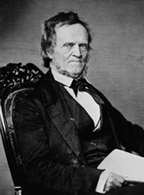 more about actual Canadian history than many if not most other Canadians today. In some indisputable respects, he is controversial in the local tradition of the feisty Scottish immigrant of the earlier 19th century, William Lyon Mackenzie (grandfather of the subsequent Incredible Canadian prime minister, William Lyon Mackenzie King).
more about actual Canadian history than many if not most other Canadians today. In some indisputable respects, he is controversial in the local tradition of the feisty Scottish immigrant of the earlier 19th century, William Lyon Mackenzie (grandfather of the subsequent Incredible Canadian prime minister, William Lyon Mackenzie King).
Those local historians who especially value Charles Roach’s contribution to Toronto political culture over the past several decades like to point, e.g., to his recurrent public-spirited Victoria Day commemorations of the executions of Samuel Lount and Peter Matthews in the Court House Square, just northwest of King and Church streets, for their roles in the Upper Canadian Rebellion of 1837. (Here are two men who gave their lives as a matter of principle for the Canadian “free and democratic society” we know today. And three cheers for Charles Roach, for trying to help us remember them.)
Until the Canadian Citizenship Act of 1977, it was not really necessary for Charles Roach to become a Canadian citizen. In fact, the legal status of a Canadian citizen has only existed since 1947. Before that Canadians were just British subjects. And between 1947 and 1977, as a British subject born in the West Indies, living in Canada, Mr. Roach still had most of the rights of a Canadian citizen in any case.
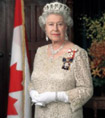 By the time this particular last vestige of the empire on which the sun never dared to set was removed from Canadian citizenship law (some 22 years after he first arrived in Canada), Mr. Roach had developed his mature Canadian republican convictions.
By the time this particular last vestige of the empire on which the sun never dared to set was removed from Canadian citizenship law (some 22 years after he first arrived in Canada), Mr. Roach had developed his mature Canadian republican convictions.
Even today, in 2007, you cannot become a Canadian citizen unless you swear that you will be “faithful and bear true allegiance to Her Majesty the Queen.” As Judge Edward Belobaba of the Ontario Superior Court of Justice has just quite nicely written, in his May 17 decision on Charles Roach’s current “class-action” court case, “Mr. Roach and the other members in this proposed class action would like to become Canadian citizens. But they would also like to see a constitutional amendment that would remove what they believe is an undemocratic vestige of a colonial experience that has no place in a modern and independent Canada … they want to advocate a constitutional reform that would eliminate the British Queen as the Canadian head of state. They cannot do this, they say, if they are required to swear an oath that they will be faithful and bear true allegiance to Her Majesty the Queen.'”
2. The new case and the old case …
 “Canada’s new government” in Ottawa, now ultimately responsible for the citizenship oath and acting through the Attorney General of Canada, had wanted Judge Belobaba to simply dismiss Mr. Roach’s current proposed class action, before it even got started – chiefly on the grounds that he unsuccessfully tried to advance a similar case in the early 1990s, and was finally rebuffed by the Federal Court of Appeal.
“Canada’s new government” in Ottawa, now ultimately responsible for the citizenship oath and acting through the Attorney General of Canada, had wanted Judge Belobaba to simply dismiss Mr. Roach’s current proposed class action, before it even got started – chiefly on the grounds that he unsuccessfully tried to advance a similar case in the early 1990s, and was finally rebuffed by the Federal Court of Appeal.
(Or as the legal commentator Gail J. Cohen, who is sympathetic to the federal government’s position, has recently written: “If the action is allowed to go forward and then gets certified, it surely will be a huge waste of the court’s time and resources. Roach may have been fighting this fight for 15 years, but he’s already had a kick at the can in the court and lost. He should find some other way.”)
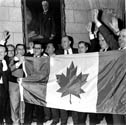 Judge Belobaba disagreed with the federal government, for a number of reasons. One of them is that the 1994 Federal Court of Appeal decision which dismissed Mr. Roach’s earlier case involved three judges. And one of them (Justice Linden) wrote a strong dissenting or minority opinion that did not at all dismiss a number of Mr. Roach’s contentions. (And, though Judge Belobaba did not quite put it this way himself, if you read this earlier 1994 case today you might easily enough conclude that, in retrospect, Justice Linden’s minority decision has considerably greater depth as a legal argument than the majority decision, written by Justice MacGuigan – and more convincingly meets the common-sense test of the time that has since elapsed.)
Judge Belobaba disagreed with the federal government, for a number of reasons. One of them is that the 1994 Federal Court of Appeal decision which dismissed Mr. Roach’s earlier case involved three judges. And one of them (Justice Linden) wrote a strong dissenting or minority opinion that did not at all dismiss a number of Mr. Roach’s contentions. (And, though Judge Belobaba did not quite put it this way himself, if you read this earlier 1994 case today you might easily enough conclude that, in retrospect, Justice Linden’s minority decision has considerably greater depth as a legal argument than the majority decision, written by Justice MacGuigan – and more convincingly meets the common-sense test of the time that has since elapsed.)
Another of Judge Belobaba’s reasons is that other legal commentators, following Justice Linden’s minority opinion in the earlier case, have also subsequently acknowledged (and even urged) the “possibility” that, as Charles Roach’s current case more exactly contends, the part of the Canadian citizenship oath which refers to the Queen “may be in violation of sections 2 and 15 of the Charter of Rights.” (A particular example here is a 2002 article by the Ontario lawyer Bryce Edwards, in the University of Toronto Faculty of Law Review, which argues that “the current Canadian citizenship oath, which contains an oath of allegiance to the Queen, is constitutionally infirm.”)
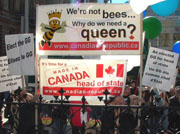 In other respects as well, Judge Belobaba points out, Mr. Roach’s present case is not the same as his earlier case from the 1990s. In the earlier case Mr. Roach was acting for himself. The present case is a class action, in which the “application has been filed by Mr. Roach but is being brought on behalf of himself and a similarly situated class of persons, two of whom were in court when the motion was heard.”
In other respects as well, Judge Belobaba points out, Mr. Roach’s present case is not the same as his earlier case from the 1990s. In the earlier case Mr. Roach was acting for himself. The present case is a class action, in which the “application has been filed by Mr. Roach but is being brought on behalf of himself and a similarly situated class of persons, two of whom were in court when the motion was heard.”
(These two persons are Mr. Michael McAteer and Mr. Ashok Charles, originally from Ireland and India respectively, but permanent residents of Canada for almost as long as Mr. Roach. Mr. McAteer is a retired journalist, who used to write the religion column in the Toronto Star. Mr. Charles, a freelance photographer in his early 50s who came to Canada with his parents when he was six years old, is even a Canadian citizen, whose contention is that he took the oath to the Queen as a young adult only under duress. He has since publicly recanted that part of his citizenship oath that refers to the Queen, while reaffirming all other parts, in a ceremony at Queen’s Park in Toronto, attended by several dozen people. And he has been assured in writing by Citizenship and Immigration Canada that this in no way affects his citizenship status.)
 Mr. Roach has also filed with the court, Judge Belobaba notes, a variety of additional fresh evidence and arguments, which have at least a new “chance” of success if the class action is allowed to go forward and get certified, as the legal language puts it.
Mr. Roach has also filed with the court, Judge Belobaba notes, a variety of additional fresh evidence and arguments, which have at least a new “chance” of success if the class action is allowed to go forward and get certified, as the legal language puts it.
Judge Belobaba concludes his written decision of May 17, 2007 with: “The constitutional challenge to the requirement that new Canadian citizens swear or affirm an oath of allegiance to Her Majesty the Queen and not simply to the country, its people and its laws, is neither frivolous nor vexatious. There is a plausible argument that this requirement violates the Charter of Rights and Freedoms. There is evidence, filed by the applicant, that suggests that a requirement in a Canadian citizenship oath to swear allegiance to the Queen may not be a reasonable limit that is demonstrably justifiable in a free and democratic society. There is at least a possibility or chance of success … In my view, this matter can be litigated in the Superior Court of this province.”
3. The Conservative Party of Canada and the “constitutional monarchy”
 As noted, the Attorney General of Canada has very quickly indicated that it will be appealing Justice Belobaba’s May 17, 2007 decision to the Ontario Court of Appeal. It still wants Charles Roach’s class-action constitutional challenge shut down, before it can even begin to properly present all its fresh evidence and arguments.
As noted, the Attorney General of Canada has very quickly indicated that it will be appealing Justice Belobaba’s May 17, 2007 decision to the Ontario Court of Appeal. It still wants Charles Roach’s class-action constitutional challenge shut down, before it can even begin to properly present all its fresh evidence and arguments.
And again, we can only wonder why? To paraphrase Ms. Gail J. Cohen, “surely” this constitutes “a huge waste of the court’s time and resources” in its own right. Why can’t the federal government just accept that it has now “already had a kick at the can in the court and lost”?
Why is it so important, anyway, to the present Conservative minority government in Ottawa (which is presumably behind the Attorney General of Canada’s decision) that new Canadian citizens continue the present rather quaint practice of swearing an oath that they will be “faithful and bear true allegiance to Her Majesty the Queen”?
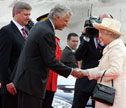 The federal government and its supporters would perhaps just keep saying that this issue has already been decided by Justice MacGuigan’s 1994 2-to-1 majority decision in Mr. Roach’s earlier case.
The federal government and its supporters would perhaps just keep saying that this issue has already been decided by Justice MacGuigan’s 1994 2-to-1 majority decision in Mr. Roach’s earlier case.
More exactly, Stephen Harper’s new Conservative Party of Canada is the only major federal political party in the country today that has upholding the “constitutional monarchy” still prescribed in the Constitution Act 1867 as an objective in its constitution. And the crux of Justice MacGuigan’s majority decision in the earlier case is that new citizens must swear allegiance to the Queen because, in a very formal sense at least, Canada does remain a constitutional monarchy – at least until the federal and provincial governments take advantage of section 41 of the Constitution Act 1982, and abolish the constitutional monarchy.
Or, in Justice MacGuigan’s own language, “the oath of allegiance has to be understood to be binding in the same way as the rest of the Constitution of Canada not forever, nor in some inherent way, but only so long as the Constitution is unamended in that respect.”
4. Is the current citizenship oath really “constitutionally prescribed”?
 The trouble with all this is that Justice MacGuigan’s 1994 majority decision reflected what Justice Linden’s minority decision of 1994 called the “primitive state of the law” on the matter at that time (and today as well no doubt). When you start thinking about it at all seriously, there are various respects in which it does not add up to a lot of common sense. (And this is if anything even more true in 2007 than it was in 1994.)
The trouble with all this is that Justice MacGuigan’s 1994 majority decision reflected what Justice Linden’s minority decision of 1994 called the “primitive state of the law” on the matter at that time (and today as well no doubt). When you start thinking about it at all seriously, there are various respects in which it does not add up to a lot of common sense. (And this is if anything even more true in 2007 than it was in 1994.)
To start with, everyone on all sides – from Justice MacGuigan to Justice Linden, Judge Belobaba, the Attorney General of Canada, and even Charles Roach – agrees that, as matters stand (and as Judge Belobaba put it in his May 17, 2007 decision): “The fact that the Queen is Canada’s head of state is constitutionally prescribed by ss. 9 and 17 of the Constitution Act 1867. Canada is a constitutional monarchy.” This does remain the case “so long as the Constitution is unamended in that respect.” But the point at issue is just what does this fact mean, practically and constitutionally, for the Canadian citizenship oath today?
 Here Judge Belobaba’s May 17 decision, e.g., makes it quite clear that: “There is nothing in the Constitution Act that requires a Canadian oath of citizenship or that a new citizen must swear allegiance to the Queen. It is interesting to note that in Australia, also a constitutional monarchy, new citizens are required to take a pledge of commitment’ to Australia and its people … and laws.’ This pledge of commitment’ makes no reference to Her Majesty the Queen.”
Here Judge Belobaba’s May 17 decision, e.g., makes it quite clear that: “There is nothing in the Constitution Act that requires a Canadian oath of citizenship or that a new citizen must swear allegiance to the Queen. It is interesting to note that in Australia, also a constitutional monarchy, new citizens are required to take a pledge of commitment’ to Australia and its people … and laws.’ This pledge of commitment’ makes no reference to Her Majesty the Queen.”
If this seems to more or less directly contradict Justice MacGuigan’s 1994 decision that “the oath of allegiance has to be understood to be binding in the same way as the rest of the Constitution of Canada not forever, nor in some inherent way, but only so long as the Constitution is unamended in that respect,” it probably does.
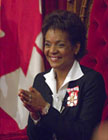 Though Justice Belobaba does not venture any opinion on this contradiction, you might guess that section 128 of the Constitution Act 1867 lies at the root of the trouble. This does clearly prescribe that federal and provincial legislators must swear an oath of allegiance to the Queen before taking office. And this can only be changed by a constitutional amendment. Judge Belobaba’s implicit point is only that this says nothing about new citizens. (And this is also true, by the way, of various other oaths of allegiance in Canadian public life that once referred to the Queen, but do so no longer – as in the cases, e.g. of Ontario and Manitoba lawyers, Ontario police officers, and Canadian federal public servants.) Given the primitive state of the law on the matter in 1994, Justice MacGuigan may have assumed that section 128 of the Constitution Act 1867 applied to new citizens as well as federal and provincial legislators.
Though Justice Belobaba does not venture any opinion on this contradiction, you might guess that section 128 of the Constitution Act 1867 lies at the root of the trouble. This does clearly prescribe that federal and provincial legislators must swear an oath of allegiance to the Queen before taking office. And this can only be changed by a constitutional amendment. Judge Belobaba’s implicit point is only that this says nothing about new citizens. (And this is also true, by the way, of various other oaths of allegiance in Canadian public life that once referred to the Queen, but do so no longer – as in the cases, e.g. of Ontario and Manitoba lawyers, Ontario police officers, and Canadian federal public servants.) Given the primitive state of the law on the matter in 1994, Justice MacGuigan may have assumed that section 128 of the Constitution Act 1867 applied to new citizens as well as federal and provincial legislators.
In any event, the crucial point in this context that Judge Belobaba stressed in his May 17, 2007 decision on Charles Roach’s present case is just that, when you start looking a bit more deeply, “the content of the Canadian citizenship oath is not constitutionally prescribed. It is simply the consequence of an ordinary federal law that can be amended or repealed by the federal government, or as here, can be the subject of a constitutional challenge.”
5. How important is the constitutional monarchy in Canada today?
 There are several more legal and constitutional arguments of this or a related sort that might be made – and no doubt will be if Charles Roach’s present class-action case manages to get by the next hurdle that the Attorney General of Canada is going to throw its way, in the Ontario Court of Appeal. But there is a general sense in which virtually all the main arguments turn around the question of just how important the “constitutional monarchy” really is in Canada today.
There are several more legal and constitutional arguments of this or a related sort that might be made – and no doubt will be if Charles Roach’s present class-action case manages to get by the next hurdle that the Attorney General of Canada is going to throw its way, in the Ontario Court of Appeal. But there is a general sense in which virtually all the main arguments turn around the question of just how important the “constitutional monarchy” really is in Canada today.
Beyond all the subtle and not-so-subtle legalities and constitutional fine points, that is to say, if it is so very important that new citizens continue to swear allegiance to the Queen, that must be because the constitutional monarchy continues to be a very important part of Canadian life today. (More important, e.g., than in Australia, which no longer requires its new citizens to swear allegiance to the Queen.) Or as Justice MacGuigan put it in his 1994 majority opinion on Charles Roach’s earlier case: “The appellant could hardly complain that, in order to become a Canadian citizen, he had to express agreement with the fundamental structure of our country.”
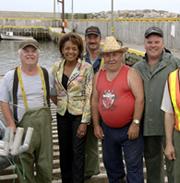 Yet, just as a matter of common sense again, it would seem very hard to seriously maintain nowadays that the Queen and the constitutional monarchy really have much at all to do with “the fundamental structure of our country.” Since the end of the Second World War, virtually all the practical functions of the British monarch in Canada have been effectively (and even constitutionally) handed over to the Governor General and Commander in Chief of Canada, who has been since 1952 a Canadian appointed by the Canadian prime minister.
Yet, just as a matter of common sense again, it would seem very hard to seriously maintain nowadays that the Queen and the constitutional monarchy really have much at all to do with “the fundamental structure of our country.” Since the end of the Second World War, virtually all the practical functions of the British monarch in Canada have been effectively (and even constitutionally) handed over to the Governor General and Commander in Chief of Canada, who has been since 1952 a Canadian appointed by the Canadian prime minister.
As a leading Canadian political science textbook of as long ago as the early 1970s put it: The “formal executive power in Canada is vested in the Crown and, in a very formal sense, we can be said to have a monarchical form of government.” But nowadays the “Governor General exercises all of the prerogative rights and privileges of the Queen in right of Canada, according to the BNA Act [now called the Constitution Act 1867] and the [1947] Letters Patent that define his [or her] office.” And even in this context, the “constitutional doctrine of popular sovereignty has … reduced the de facto role of the Governor General to that of a figurehead. The real power is exercised by the Prime Minister and his cabinet who obtain their legitimacy from the fact that they possess a popular mandate.” (Or, very formally, Canada nowadays remains a constitutional monarchy, as prescribed by the Constitution Act 1867. But it is also, and much more fundamentally, what the Constitution Act 1982 calls “a free and democratic society.”)
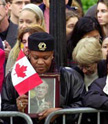 Still more to the point practically, some will say, as Maclean’s magazine reminded us this past fall: “Canadians are deeply divided on the role of the British monarchy in our parliamentary system … A year ago, a Strategic Counsel poll found Canadians were evenly split on whether the British monarch should remain Canada’s head of state, with 47 per cent saying ties to the Crown should be cut, and 47 per cent in support of the status quo.”
Still more to the point practically, some will say, as Maclean’s magazine reminded us this past fall: “Canadians are deeply divided on the role of the British monarchy in our parliamentary system … A year ago, a Strategic Counsel poll found Canadians were evenly split on whether the British monarch should remain Canada’s head of state, with 47 per cent saying ties to the Crown should be cut, and 47 per cent in support of the status quo.”
How can an institution with virtually no current practical function, that about half the present-day population wants to see abolished, be seriously said to constitute “the fundamental structure of our country,” to which it is absolutely essential that all new citizens swear an oath that they will be faithful and bear true allegiance?
6. “Demanding loyalty to a particular political theory” …
 At the very end, it is easy enough to jump to the conclusion that the present Conservative minority government in Ottawa wants to shut down Charles Roach’s present proposed class action on the citizenship oath to the Queen, simply because it wants to enforce its own continuing ideological commitment to the constitutional monarchy in Canada.
At the very end, it is easy enough to jump to the conclusion that the present Conservative minority government in Ottawa wants to shut down Charles Roach’s present proposed class action on the citizenship oath to the Queen, simply because it wants to enforce its own continuing ideological commitment to the constitutional monarchy in Canada.
(And here as elsewhere, some would no doubt say, it is prepared to bully the Canadian people to get its way, even though it won only just over 36% of the popular vote in the 2006 election – considerably less than the 47% of Canadians “saying ties to the Crown should be cut” in 2005.)
In this context Justice Linden’s minority opinion on Mr. Roach’s earlier court case of the 1990s had some particular impressive things to say – that seem especially worth bearing in mind as the fate of Mr. Roach’s present case does or does not unfold over the next while: “It may be argued that it strikes at the very heart of democracy to curtail collective opposition and incentive for change by demanding loyalty to a particular political theory. Similarly, it may be said that it is wrong to build a barrier to joining associations dedicated to a different political theory.”
 Or, put another way, if you like, the Attorney General of Canada wants to make sure that there is no such thing as a legal level playing field in the debate about the future of the British monarchy in Canada today, by compelling all new Canadian citizens to swear allegiance to the monarchist rather than the republican political theory of the future. That is at least one way of trying to ensure that what David Smith of the University of Saskatchewan called The Republican Option in Canada in his book of 1999 never will finally see the light of day.
Or, put another way, if you like, the Attorney General of Canada wants to make sure that there is no such thing as a legal level playing field in the debate about the future of the British monarchy in Canada today, by compelling all new Canadian citizens to swear allegiance to the monarchist rather than the republican political theory of the future. That is at least one way of trying to ensure that what David Smith of the University of Saskatchewan called The Republican Option in Canada in his book of 1999 never will finally see the light of day.
In any event, all those present-day Canadians who see themselves as loyal primarily to the free and democratic society of the Constitution Act 1982 (and the Charter of Rights and Freedoms which it contains), as opposed to the constitutional monarchy of the Constitution Act 1867, should be saying prayers for Charles Roach, and his class-action constitutional challenge of the citizenship oath to the Queen in Ontario.
Regardless of how many American Black Panther refugees he may have defended in the 1970s, Mr. Roach, though he is still not quite yet an official Canadian citizen, is certainly a Canadian pioneer of the early 21st century. And another three cheers for him on this as well.

